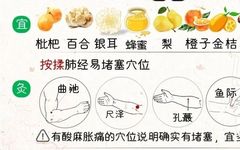The Five Organs and Six Bowels
The human body consists of the five organs, interconnected through the meridian system, which “internally belongs to the organs and externally connects to the limbs and joints.” The five organs connect the six bowels, body, five senses, nine orifices, and all parts of the body into a whole.
Characteristics of the Five Organs: They store essence and qi without leaking.
Characteristics of the Six Bowels: They transmit and transform substances without storing essence and qi.
Characteristics of the Extraordinary Bowels: They resemble the bowels in form but also store essence, being different from ordinary bowels.
1. Heart:
The heart is the sovereign organ, the master of the five organs and six bowels, belonging to the fire element.
The heart governs blood vessels, driving and regulating blood circulation within the vessels.
The heart houses the spirit: it commands the physiological activities of all organs, meridians, body, and orifices; it governs human consciousness.
The tongue is the sprout of the heart: the heart’s meridians are all connected to the tongue, especially the tip, which expresses joy: joy and happiness benefit the heart; however, excessive joy can harm the heart, as seen in the case of Fan Jin, who went mad from excessive joy after passing the imperial exam.
2. Liver:
The liver governs the smooth flow of qi and is responsible for the discharge of the body’s vital energy (including emotions), acting like a logistics service that distributes vital energy throughout the body.
The liver stores blood: it stores blood, regulates blood volume, and prevents bleeding; for instance, heavy menstrual flow is often related to the liver’s inability to store blood.
Anger harms the liver: anger causes qi to rise; when a person is irritable and easily angered, it is often due to excessive liver fire.
The liver opens to the eyes: the liver’s meridians connect to the eyes, and there is a close relationship between the liver and vision; clinically, all eye diseases are primarily treated by addressing the liver.
3. Spleen:
The spleen governs transformation and transportation, converting food and water into vital energy and distributing it throughout the body; if the spleen is deficient, it not only fails to transform nutrients but also generates phlegm and dampness internally.
The spleen governs blood: it regulates the blood throughout the body; a deficiency in the spleen can lead to blood not following its proper channels, causing various abnormal bleeding, such as nosebleeds or red spots on the skin.
Worry harms the spleen: excessive thinking and worry obstruct the spleen’s qi, leading to stagnation of the spleen and stomach qi.
4. Lung:
The lung governs qi and respiration: it manages the expulsion of turbid qi (exhaling) and the inhalation of clear qi; when lung function is abnormal, symptoms such as cough, fatigue, and shortness of breath may occur.
The lung governs the movement of fluids: also known as regulating the waterways, the lung’s respiration promotes and regulates the distribution and excretion of body fluids, such as blood, bodily fluids, sweat, and urine.
Worry and sadness harm the lung: excessive sadness can deplete qi; for example, Lin Daiyu.
5. Kidney:
The kidney governs the storage of essence; it is the body’s “savings bank,” storing reproductive essence and the essence of the organs; daily nutrient intake, after expenses, is stored in the kidneys.
The kidney governs bones and produces marrow: it is responsible for the growth and development of bones and the fullness of bone marrow, with the brain being the sea of marrow; poor kidney function can lead to loose or lost teeth and poor memory.
Fear harms the kidney: fright and fear are closely related to the kidneys; for instance, urinating from fear is a result of kidney qi being harmed.
The Six Bowels:
Stomach: receives and digests food and water.
Small Intestine: digests and absorbs, separating clear from turbid.
Large Intestine: transmits and transforms waste, governs bodily fluids.
Bladder: stores and excretes urine.
San Jiao (Triple Burner): regulates the waterways and the movement of fluids; it governs the flow of qi.
Gallbladder: stores and excretes bile, governs decision-making.
Extraordinary Bowels: Gallbladder: as mentioned above.
Brain: the sea of marrow, governs life and mental activities, sensory and motor functions; marrow nourishes the bones.
Bone: the body’s framework.
Meridians: circulate blood.
Women’s uterus: menstruation and reproduction.
Relationship between the organs and bowels
Relationship between the liver and gallbladder
The liver governs the smooth flow of qi and secretes bile; the gallbladder is attached to the liver, storing and excreting bile, both working together to regulate the smooth flow of vital energy and assist in its transformation.
Relationship between the heart and small intestine
The heart fire warms the small intestine, and heart blood nourishes the small intestine; the small intestine absorbs the essence of food and water, with the concentrated parts being transported by the spleen to nourish the heart.
Pericardium and San Jiao
The pericardium protects the heart internally and governs blood; the San Jiao externally regulates the qi of the whole body, governing qi and coordinating the waterways, ensuring internal and external harmony.
Spleen and Stomach
The spleen governs the transformation of food and water essence, while the stomach governs the reception of food and water; the spleen ascends, and the stomach descends, complementing each other.
Lung and Large Intestine
The lung’s qi descends and the large intestine’s transmission work together; smooth lung qi is beneficial for waste elimination, and smooth large intestine transmission is beneficial for lung qi descent.
Kidney and Bladder
The kidney is the water organ, and the bladder is the water bowel. The bladder’s function depends on the kidney qi’s abundance; proper storage and excretion of urine by the bladder also benefit the kidney qi’s governance of water.
Explanation of the physiological functions of the liver, heart, spleen, lung, and kidney
Physiological functions of the liver and strategies for liver health
The liver governs the smooth flow of qi, responsible for the discharge of the body’s vital energy (including emotions), acting like a logistics service that distributes vital energy throughout the body.
2. The liver stores blood: it stores blood, regulates blood volume, and prevents bleeding; for instance, heavy menstrual flow is often related to the liver’s inability to store blood.
3. Anger harms the liver: anger causes qi to rise; when a person is irritable and easily angered, it is often due to excessive liver fire.
4. The liver opens to the eyes: the liver’s meridians connect to the eyes, and there is a close relationship between the liver and vision; clinically, all eye diseases are primarily treated by addressing the liver.
5. The liver governs tendons: the liver is responsible for the growth and development of tendons (muscles and ligaments); sufficient liver blood strengthens the tendons, and the male reproductive organ, known as the “zong tendon,” is also governed by the liver.
6. Its manifestation is in the nails: nails are extensions of the tendons; if the nails are strong, red, and shiny, it indicates sufficient liver blood; conversely, if the nails are soft, thin, lack luster, and have vertical ridges, it indicates liver blood deficiency.
Symptoms indicating the need for liver nourishment: easy eye fatigue, dry eyes, decreased vision, red blood vessels in the eyes, irritability, discomfort from staying up late, bitter mouth, and menstrual issues.

Strategies for heart health
1. The heart is the sovereign organ, the master of the five organs and six bowels, belonging to the fire element.
2. The heart governs blood vessels, driving and regulating blood circulation within the vessels.
3. The heart houses the spirit: it commands the physiological activities of all organs, meridians, body, and orifices; it governs human consciousness.
4. Sweat is the fluid of the heart: the heart is closely related to sweat; excessive sweating can harm heart yang.
5. The tongue is the sprout of the heart: the heart’s meridians are all connected to the tongue, especially the tip.
6. Its intention is joy: joy and happiness benefit the heart; however, excessive joy can harm the heart, as seen in the case of Fan Jin, who went mad from excessive joy after passing the imperial exam.
7. Its manifestation is in the face: the qi and blood of the whole body are reflected in the face; thus, the heart’s function can be reflected in the face.
Heart health strategies
Excess heart fire: irritability, insomnia, dry mouth, thirst, and sores on the tongue, especially at the tip.
Recommended: consume bitter foods to reduce heart fire, such as bitter melon, almonds, lotus seeds with hearts, honeysuckle, lotus root, mung beans, lily, lotus leaves, mint, and chrysanthemum.
Avoid: spicy and stimulating foods such as chili, Sichuan pepper, garlic, and pepper; maintain a light diet.
Heart qi deficiency: pale complexion, palpitations, chest tightness, fatigue, and easy sweating.
Recommended: consume heart-nourishing foods such as lotus seeds, jujubes, longan, codonopsis, astragalus, and cultivated ginseng.
Avoid: raw, cold, and cooling foods such as seafood, cold drinks, milk, and most fruits (which are mostly cooling).
Physiological functions of the spleen and health strategies
The spleen governs transformation and transportation, converting food and water into vital energy and distributing it throughout the body; if the spleen is deficient, it not only fails to transform nutrients but also generates phlegm and dampness internally.
The spleen governs blood: it regulates the blood throughout the body; a deficiency in the spleen can lead to blood not following its proper channels, causing various abnormal bleeding, such as nosebleeds or red spots on the skin.
The spleen governs the muscles of the four limbs: a healthy spleen leads to a well-proportioned body, elastic skin, and strong limbs; a deficient spleen can lead to loose skin and weak limbs.
The spleen prefers dryness and dislikes dampness:
The spleen generates dampness: a deficient spleen leads to water and dampness accumulation, which is closely related to appetite and taste; a deficient spleen can lead to loss of appetite.
Dampness obstructs the spleen: water and dampness can further obstruct the spleen qi, leading to spleen deficiency.
It opens to the mouth, and its manifestation is in the lips.
Appetite and taste are closely related to the spleen; a deficient spleen can lead to loss of appetite, bland taste, sticky mouth, and pale, dull lips.
Health strategies for the spleen and stomach The spleen and stomach are closely related partners; the spleen governs the ascent of clear qi, while the stomach governs the descent of food and water; both work together to transform food and water, providing nutrition for the whole body.
Among them, the concept of the spleen is often misunderstood; in TCM, the spleen encompasses functions such as digestion, absorption, material metabolism, fluid balance, and part of blood circulation, which are functionally defined; whereas in Western medicine, the spleen is an immune and blood storage organ, which is a specific physical organ, and the two are not the same.
The spleen governs transformation, converting food and water into vital energy and distributing it throughout the body; if the spleen is deficient, it not only fails to transform nutrients but also generates phlegm and dampness.
The spleen qi ascends: the spleen qi rises and transports the essence of food and water upwards to the heart, lungs, and head, nourishing the whole body through the heart and lungs.
The spleen prefers dryness and dislikes dampness: a deficient spleen leads to water and dampness accumulation, which is closely related to appetite and taste; a deficient spleen can lead to loss of appetite.
Dampness obstructs the spleen: water and dampness can further obstruct the spleen qi, leading to spleen deficiency.
Spleen dampness is the source of many diseases; if dampness is not expelled in a timely manner, it can accumulate and lead to serious illnesses.
The stomach governs the reception and digestion of food and water, receiving and accommodating food/water, grinding and digesting food, and forming chyme after initial digestion.
The stomach qi descends: it moves downwards, facilitating the descent of food and waste.
The stomach prefers moisture and dislikes dryness: the stomach needs to maintain sufficient fluids to receive and digest food; dryness can lead to stomach fire, such as burning sensations in the stomach, oral ulcers, and swollen gums.
Strategies for nourishing the spleen and stomach
Symptoms of spleen deficiency: pale mouth, nasolabial folds, heavy breath, loss of appetite, fatigue, yellow complexion, teeth marks on the tongue, excessive phlegm, and sticky stools.
When the spleen is deficient, consuming nutrient-rich foods cannot be transformed into nutrition but instead generates phlegm and dampness, leading to heavy spleen dampness.
The correct approach is to first strengthen the spleen and nourish the stomach; when the spleen and stomach return to normal, nutrition can be properly absorbed.
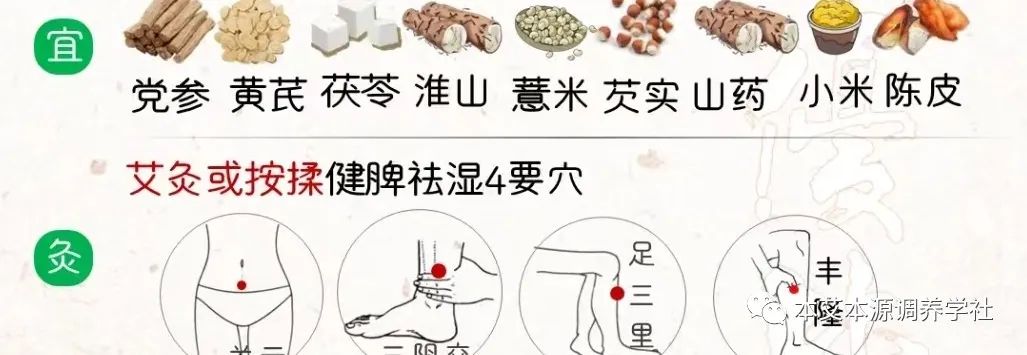
Physiological functions of the lung and strategies for lung health
The lung governs qi and respiration: it manages the expulsion of turbid qi (exhaling) and the inhalation of clear qi; when lung function is abnormal, symptoms such as cough, fatigue, and shortness of breath may occur.
The lung governs the movement of fluids: also known as regulating the waterways, the lung’s respiration promotes and regulates the distribution and excretion of body fluids, such as blood, bodily fluids, sweat, and urine.
Worry and sadness harm the lung: excessive sadness can deplete qi; for example, Lin Daiyu.
The lung opens to the nose; the throat is the portal of the lung: clinically, abnormalities in the nose and throat are often used as diagnostic criteria for lung conditions.
The lung governs the skin and hair: it protects the organs from external pathogens; when lung defensive qi is abundant, the skin is firm, moist, and resilient; conversely, it is susceptible to external pathogens and illness.
The lung and large intestine are interrelated:
The lung and large intestine are connected through meridians, forming a partnership; when lung qi descends, bowel movements are smooth, so issues with bowel movements require lung nourishment.
Strategies for lung health
Symptoms of poor lung function: difficulty expelling phlegm, tendency to develop heat, frequent colds, excessive voice use, dry and itchy throat, tendency to develop acne, sensitive skin, and rough skin.
Recommended: massage the lung meridian to relieve blockages.
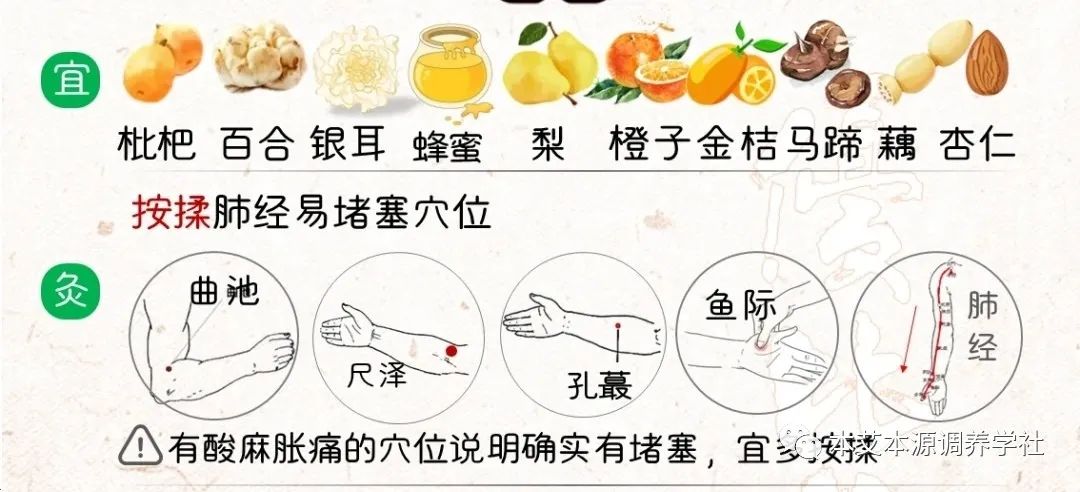
The lung is a delicate organ; avoid cold, heat, and dryness, and avoid excessive consumption of spicy and greasy foods, smoking, air pollution, prolonged sitting, and lack of exercise; avoid excessive sentimentality, sadness, and worry.
The lung belongs to the metal element, which is characterized by compliance and resilience. The lung is the ministerial organ, governing the qi of the whole body; when the lung is healthy, qi flows smoothly and obediently without chaos. The lung also governs the expulsion of pathogens; when lung qi is insufficient, immunity naturally declines.
Physiological functions of the kidney and strategies for kidney health
1. The kidney governs the storage of essence; it is the body’s “savings bank,” storing reproductive essence and the essence of the organs; daily nutrient intake, after expenses, is stored in the kidneys.
2. The kidney governs water: it regulates the metabolism of body fluids; dysfunction can lead to urinary issues, edema, and frequent nighttime urination.
3. The kidney governs bones and produces marrow: it is responsible for the growth and development of bones and the fullness of bone marrow, with the brain being the sea of marrow; poor kidney function can lead to loose or lost teeth and poor memory.
4. Fear harms the kidney: fright and fear are closely related to the kidneys; for instance, urinating from fear is a result of kidney qi being harmed.
5. The kidney opens to the ears and the two yin organs:
Kidney qi connects to the ears and the two yin organs, with their functions related to the promotion and retention of kidney qi, such as tinnitus, urinary issues, and reproductive functions.
6. Its manifestation is in the hair:
Hair is a byproduct of blood; hair growth originates from the kidneys; thus, hair loss, graying, and dull hair are signs of poor kidney health.
Strategies for kidney health
Symptoms of poor kidney function: delayed menstruation, menstrual pain, light menstrual flow, poor memory, thinning hair, lower back and knee soreness, numbness in hands and feet, and pale nails.

Physiological functions of the gallbladder
The gallbladder is often misunderstood; it is not just responsible for bile secretion.
1. The gallbladder stores and excretes bile, which is produced by the liver, to promote the digestion and absorption of food.
2. The gallbladder is an extraordinary bowel: the five organs store essence and qi without leaking, while the six bowels transmit and transform substances without storing; the gallbladder resembles both an organ and a bowel, hence it is called an extraordinary bowel, being different from ordinary bowels.
3. The gallbladder governs decision-making: it plays a role in judgment and decision-making; those with gallbladder qi deficiency may be easily frightened, timid, and prone to nightmares.
4. The liver and gallbladder are interrelated: they are closely connected through meridians, forming a partnership, hence the saying “the liver and gallbladder illuminate each other.”
5. The gallbladder’s meridian is most active during the hour of the gallbladder (11 PM to 1 AM).
The liver is the starting point of the body’s yang energy, while the gallbladder is the yang within the liver, marking the beginning of the rise of vital energy; during this time, the body is like a computer rebooting, so it is important not to disturb it! This is the fundamental reason ancient people emphasized going to bed early!
Physiological functions of the San Jiao
The San Jiao is one of the six bowels and is perhaps the most confusing concept in TCM.
The San Jiao is not a fictitious organ; ancient practitioners described it more from a functional perspective, referring to its role in managing the body’s water and fluid functions, hence the name San Jiao.
The San Jiao refers to the mesentery and greater omentum in the abdominal cavity, filling the space between the gastrointestinal tract and the bladder, serving as the pathway for water and fluids from the gastrointestinal tract to the bladder.
The San Jiao is divided into three parts: the upper, middle, and lower Jiao.
1. The upper Jiao is like mist: it refers to the area above the diaphragm, including the heart and lungs, which govern the distribution of nutrients, enveloping and nourishing the organs like mist.
2. The middle Jiao is like porridge: it refers to the upper abdomen between the diaphragm and the navel, including the spleen, stomach, liver, and gallbladder; it governs the process of the spleen and stomach transforming food and water.
3. The lower Jiao is like a drain: it refers to the area below the navel, including the kidneys, bladder, large and small intestines, uterus, and seminal vesicles; it governs the separation of clear from turbid and the excretion of waste.
Adapted from Huang Yuanyu’s “Four Sacred Heart Sources”
Understanding the concepts of “Essence, Spirit, Soul, and Corporeal Soul” in TCM
In TCM, each of the terms “essence, spirit, soul, and corporeal soul” has a clear meaning; these basic concepts have been misused, confused, and even linked to superstition, leading to unnecessary misunderstandings. This is a reorganization based on the teachings of the Qing Dynasty medical master Huang Yuanyu’s “Four Sacred Heart Sources” for easier understanding and learning.
Spirit: the heart governs clarity of consciousness; it refers to human emotional awareness and thoughts; the heart and spirit are one in ancient thought.
Essence: the kidney governs the storage of essence, which is the liquid essence that constitutes and maintains human life activities, such as congenital essence, food essence, reproductive essence, and organ essence.
Soul: the liver stores the soul, which is the initial state of spirit energy; it can be roughly understood as the functions of the brain and heart.
Corporeal Soul: the lung stores the corporeal soul, which is the initial state of essence; it can be roughly understood as the function of the spinal cord.
Understanding Vital Energy It’s another day full of vital energy.
Vital energy, also known as central qi or yang qi, is the energy of the human body; if we compare the human body to a machine, vital energy is the “electricity” that makes the machine run.
Why do people get sick? Essentially, it is a matter of “righteousness not suppressing evil”; when vital energy is sufficient to suppress evil qi, a person is healthy; conversely, when a certain part of the body lacks sufficient vital energy to resist evil qi, the person becomes ill.
The causes of illness can be categorized into two types:
Insufficient vital energy: called deficiency, akin to “low battery”.
Blocked meridians: called stagnation, akin to “poor electrical connection”.
Regulations of vital energy movement:
1. Spleen → Liver: the spleen transforms food to produce vital energy and delivers it to the liver.
2. Liver → Heart: the liver governs the smooth flow of qi and blood, consuming some vital energy before supplying it to the heart.
3. Heart → Spleen, Lung: the heart governs blood vessels and consciousness, consuming some vital energy and dividing it between the spleen for daily consumption and the remainder for the lungs.
4. Lung → Kidney: the lung governs expulsion and respiration, consuming some vital energy before supplying it to the kidneys.
5. Kidney → Liver: the kidney governs bone growth and essence storage, consuming some vital energy while storing the remainder, and some vital energy combines with that produced by the spleen to nourish the liver, continuing the cycle.
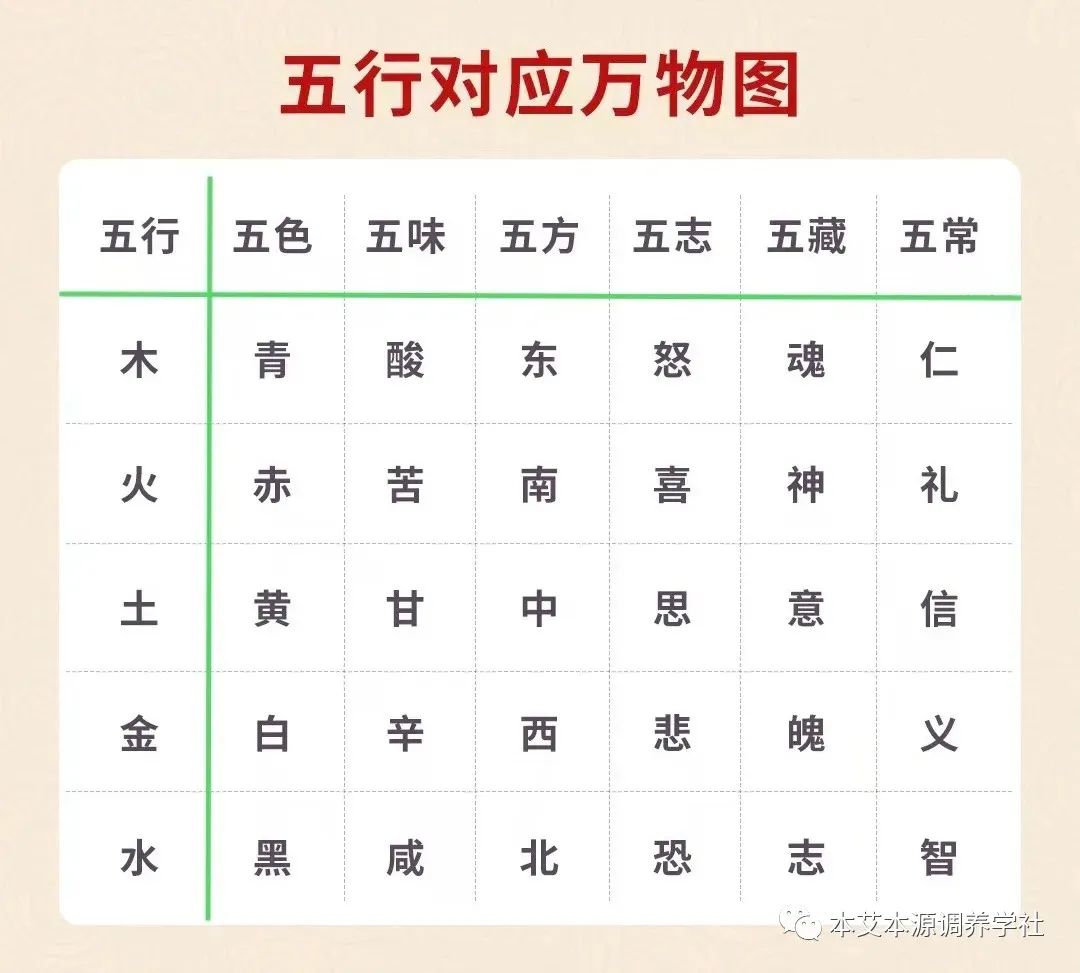
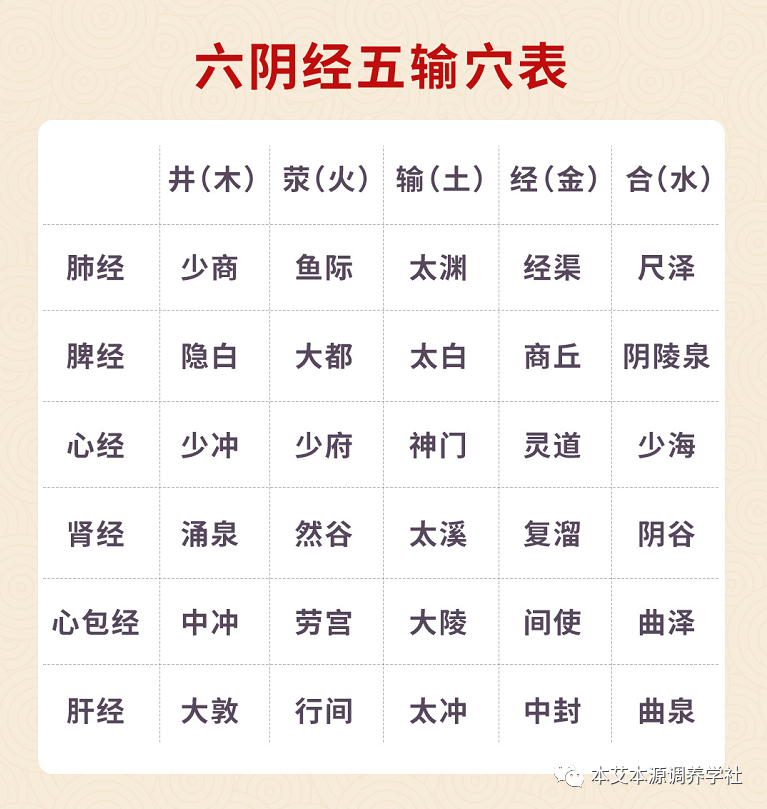
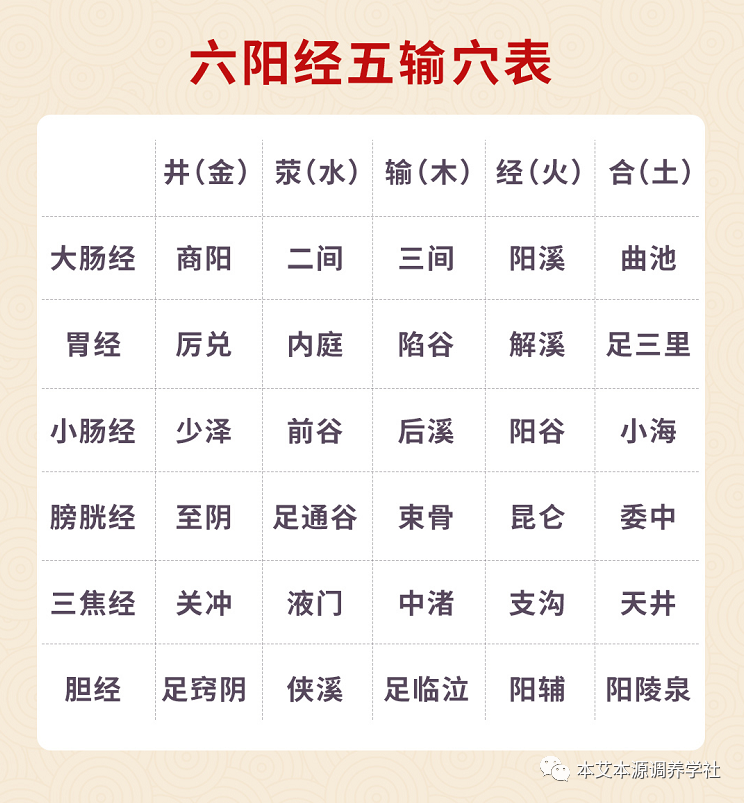
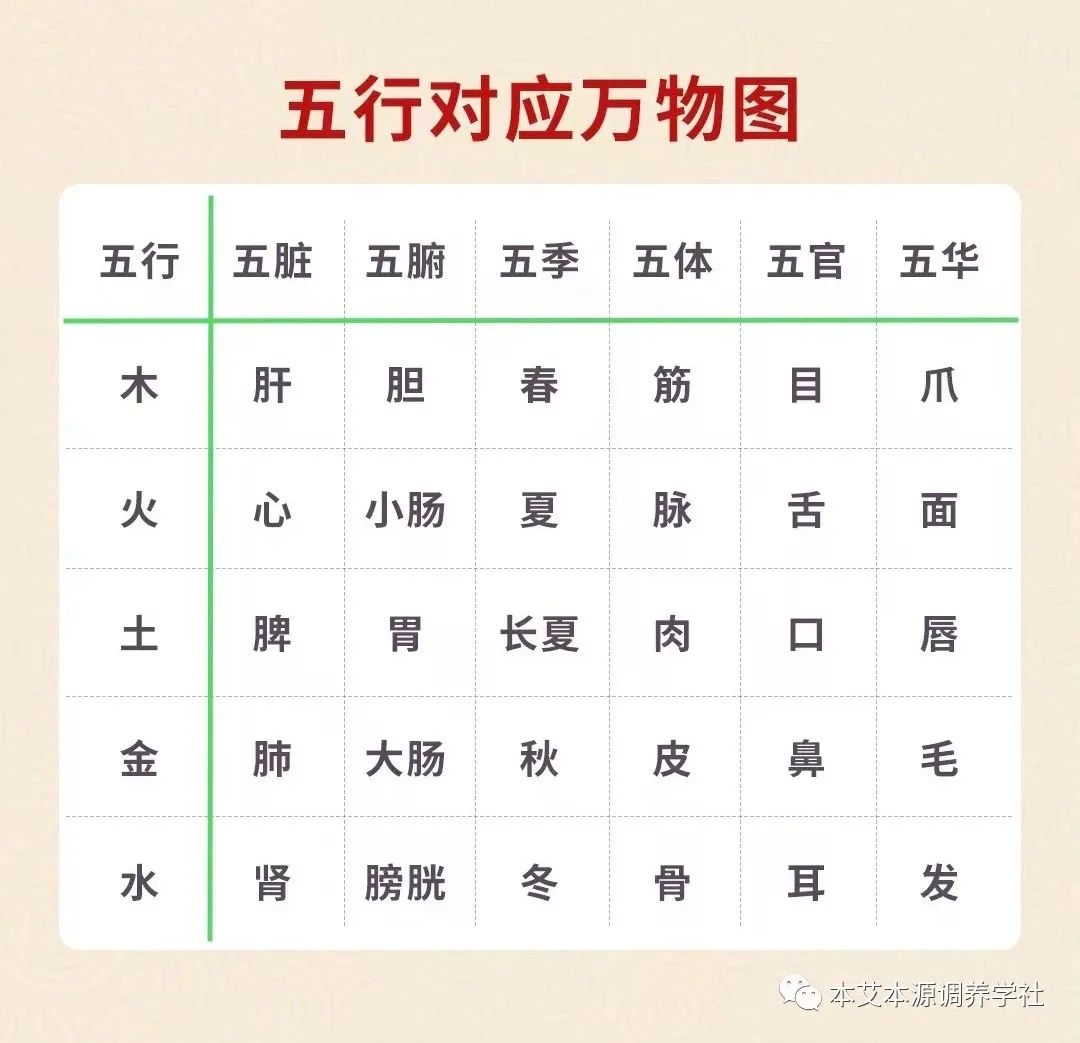

How to relieve worries, welcome to join the group for learning


